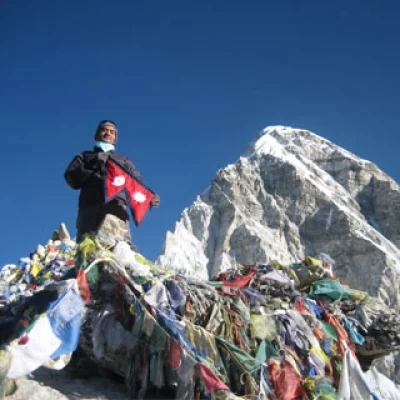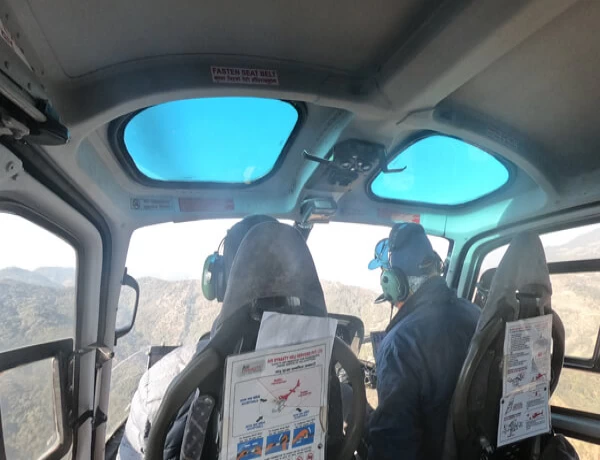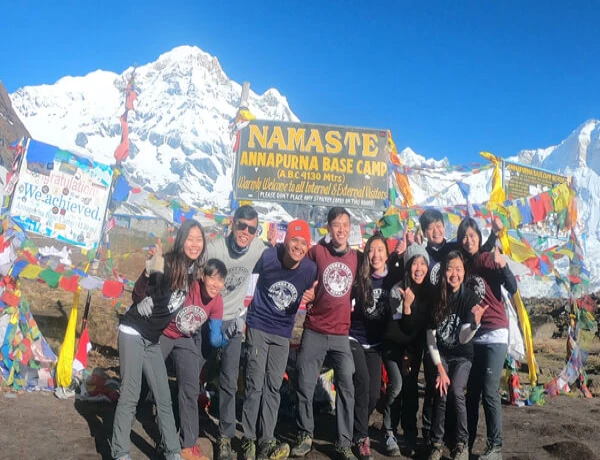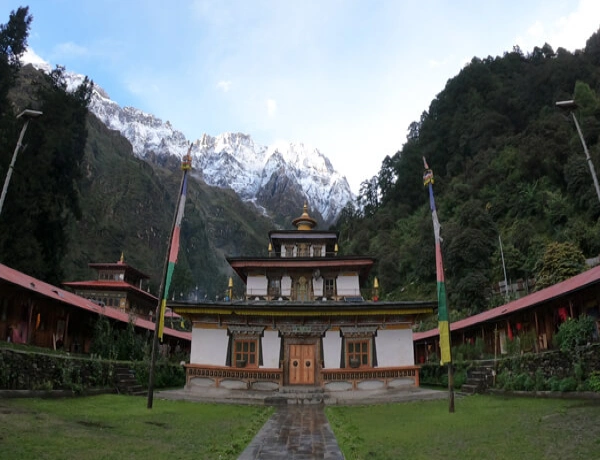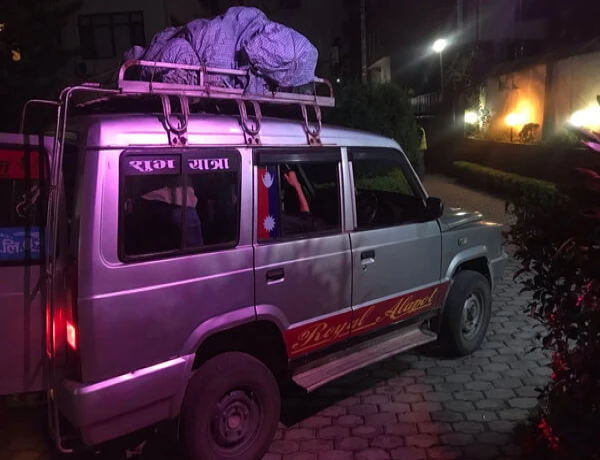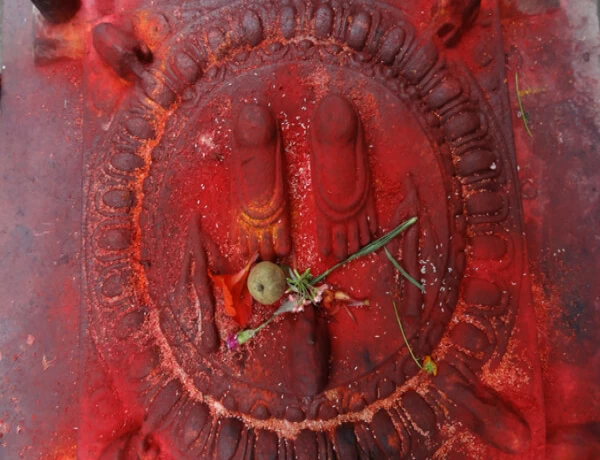Some of the treks can be a 1-day hike. But normally, trekking in Nepal consists of multiple days. It will take you to the rural part of Nepal.
The accommodations are on a basic level. You may get continental foods, but in a local style. There is excellent accessibility to electricity as well as a network.
Moreover, some trekking can take you to an elevation above 5,000 m. Generally speaking, the temperature is always at its lowest at higher elevations.
Are you planning the trek in Nepal?
The first thing you should do is to prepare and plan properly. Here are some of the points that may help with planning.
What are the best treks in Nepal for beginners?
The first question while planning a trek in Nepal is ‘where to go.’ There are plenty of trekking trails that you might get confused about which to choose.
Some treks take you to high passes. You might get altitude sickness and spoil your trek. It is best to avoid those treks for beginners. However, if you are physically fit and well-equipped with trekking gear, it is possible to do the high passes, too.
Trekking around the Annapurna region, Manaslu Trekking, and Langtang Trek can be effective choices. This list also includes some treks that can be completed by helicopter.
The Top 10 Best Treks in Nepal list will give you more guidance before you select the destination.
The Top Ten Best Treks in Nepal for Beginners:
Pikey Peak Trek: A Delightful Trek to Lower Everest (7 Days)
Ghorepani Poonhill Trek- Vantage point of Annapurna Massif (5 Days)
Langtang Valley Trek – Best amidst Beginners Treks (8 Days)
Everest View Trek – Best Beginners Treks in Everest
Mardi Himal Trek – Hidden Treasure in Annapurna Sanctuary
Helambu Trek: An Easy and Amazing Cultural Hike.
Tamang Heritage Trek - Sacred Tibetan Culture (7 Days)
Mohare Danda Community Base Trek (5 Days)
Manaslu Short Trek – This trek offers views of Manaslu, which at 8163 m is the 8th highest peak in the world (6 Days)
Chisapani Nagarkot Trek – Short Hiking near Kathmandu Valley (4 Days)
In addition, there are some countryside trekking trails to begin with. This trek only lasts a couple of days.
Which season to choose to trek in Nepal?
Nepal has various seasons throughout the year. However, every season is not suitable for the trek.
For beginner trekkers, choose the spring and autumn. It has pleasant weather with clear visibility.
What are the document requirements for a Nepal visa?
The following documents are required to visit Nepal:
- A passport valid for six months is required.
- Travel insurance covers health and immediate rescue during your stay in Nepal.
- Initial hotel booking documents
Nepal has a ‘visa arrival policy. It’s better to fill out an online form for a visa; you don’t have to stay in the queue.
Moreover, bring a handful of PP-size photos for permits.
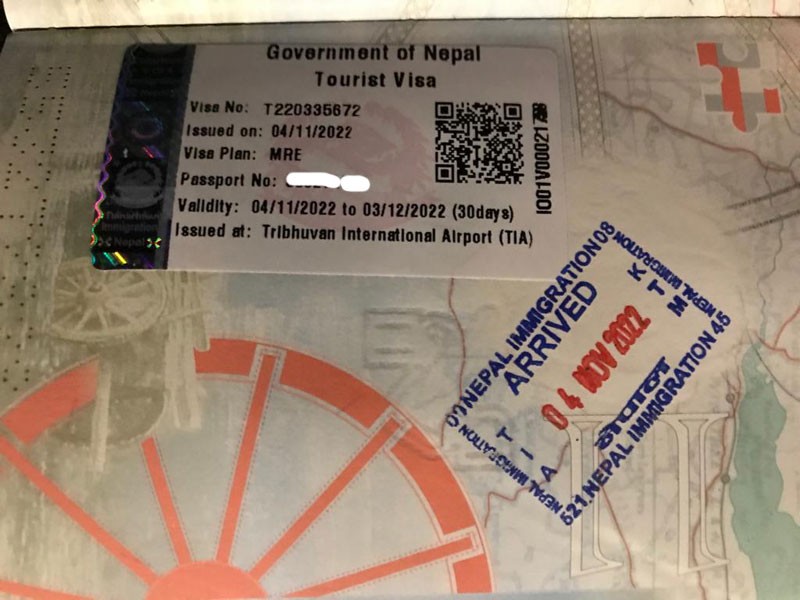
What to Pack for Nepal Trekking?
Carrying the right backpack with the right gear and equipment is the key to successful trekking. A heavy backpack is hard to lift and a light backpack cannot carry all your essentials. So pack your bag wisely.
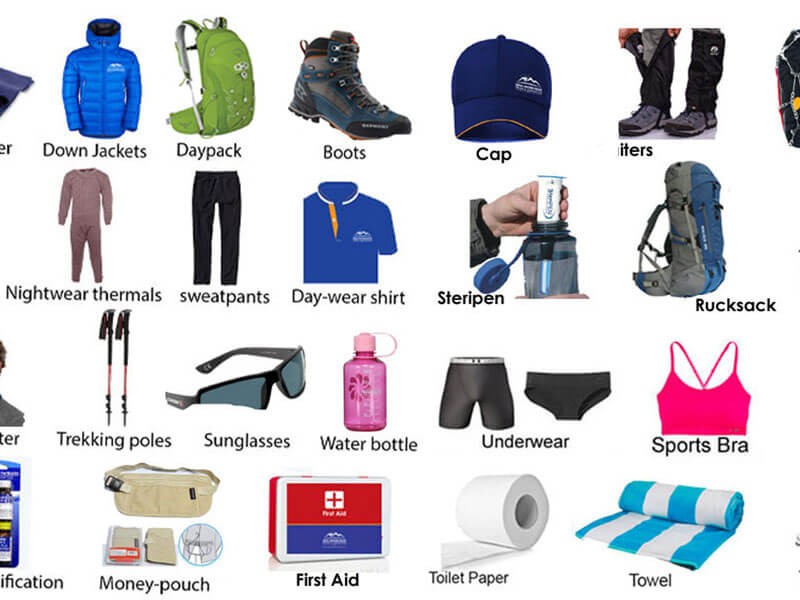
The trails of Nepal consist of continuous ascending and descending. It's better to pack a light bag with all the goods and needs. Furthermore, be concerned with your travel buddies about packing.
If you're still unsure about what to pack for trekking in Nepal, don't hesitate to consult with your travel companions. You are welcome to check it.
10 Helpful Tips for Preparing Your First Trek in Nepal
Here are the 10 helpful tips for beginner trekkers in Nepal
1. Start easy during your trek in Nepal.
Don’t push yourself on your first trek. There are plenty of easy treks to start. Give yourself time to adapt to your surroundings.
Some of the treks can give you tough times. Hence, choosing the right trek can be a vital point. Whether you choose an easy or challenging trek, you can still experience a great deal about Nepal.
We have these 10 recommended easy treks in Nepal. You may give it a try.
2. Acclimatize well during the trek
The trail of the Himalayas takes you to a towering height. Therefore, there is a high chance of getting altitude sickness. Walk at your pace and acclimatize well.
The high surroundings have a lower oxygen level as well as low atmospheric pressure. When your body does not adapt to those around you, you get altitude sickness, also known as acute mountain sickness (AMS).
The best way to prevent altitude sickness is to eat properly and ascend slowly at your own pace. It can be cured, but in some serious cases, immediate rescue is required.
3. Travel with a local agency, guide, or porter.
In this modern era, local agencies are getting top-notch in terms of hospitality and services. But first, watch reviews and ratings before choosing one.
On the other hand, Nepal is becoming increasingly popular among FITs. Anyone can travel without a guide. However, if you ever plan to join an agency and hire a guide and porter, it's better to go with locals.
Some trekking trails are under restricted areas. Special permits are necessary, and you can only get them by joining agencies.
And one more thing: you can save some bucks by booking from a local agency.
Beware of Street scams; They Offer Cheap Prices with hidden costs.
Street scams are a worldwide problem for tourists. Likewise, beware of them in Nepal, too.
During your stay in Nepal, you will visit some tourist areas like Thamel and Lakeside at Pokhara. Some random guy will approach you and end up buying Thangka paintings along with other stuff.
Around heritage sites, street guides will offer you a complete tour. Finally, they will request payment for the tour.
5. Passport-size Pictures
Bring at least 4 to 6 passport-size pictures with you. Those are essential for obtaining a Nepal visa, trekking permits, and SIM cards. Even some hotels ask for your passport picture while checking in.
How do I get SIM cards in Nepal?
When you arrive at Kathmandu airport, you can buy a Nepali SIM card, along with your passport copy and passport-size picture. You can also easily purchase SIM cards at other locations with the necessary documents. For the trek, check which SIM is best for you. There are two telephone companies in Nepal: NTC (government) and NCELL (private). Both are suitable for their coverage licenses. However, if you plan to embark on the Everest Base Camp Trek, we recommend purchasing NCELL due to its network coverage. NTC provides strong network coverage in the Langtang Valley Trek, Makalu, Manaslu Trek, Annapurna Circuit, Upper Mustang, Kanchenjunga Base Camp, and Annapurna Base Camp.
6. Learn some Nepali before visiting Nepal.
Nepal is home to kind and welcoming people. Locals are always eager to communicate and make you comfortable.
Learn some Nepali words to make them comfortable, too. Some of the starter packs are "Namaste,” which means greeting, and "Dhanyawad,” which means thank you. Also, call people “Dai” and “Didi,” which mean brother and sister, respectively.
| ENGLISH |
TRANSLITERATION |
DEVNAGARI |
| Hello (and goodbye) |
Namaste (or, more formally, -Namaskar) |
नमस्ते, (or, नमस्कार ) |
| How are you? |
Tapaailaai Kasto Chha? |
तपाईंलाई कस्तो छ ? |
| What is happening/going on? |
Ke Chha? |
के छ? |
| See you again (Goodbye?) |
Pheri BheTaulaa |
फेरि भेटौँला |
| How Much? |
Kati ho ? Kati Parchha? |
कति हो? कति पर्छ ? |
| Thank you |
Dhanyabaad |
धन्यवाद |
| I am sorry/beg your pardon |
Malaai Maaph Garnus |
मलाई माफ गर्नुस् |
| I have diarrhea |
Malaai pakhaalaa ( or Disaa) laageko chha |
मलाई पखाला ( or दिसा) लागेको छ। |
| I have fever |
Malaai Jwaro aayeko chha |
मलाई ज्वरो आएको छ। |
To learn the Nepali language kindly Go through the Easy-Nepali-Language-Learning Link.
Don’t forget to kick your taste buds with mouthwatering local street foods. It is an extra tip for you.
7. Planning Your Budget Before Start Trek
Nepal is an affordable country to travel to (besides the high cost of flight tickets). In the mountains for the meals and accommodations, you need $30-$40 per person per day, depending on the various trekking trails. In cities, the budget needs to be more.
Make sure to spend money wisely while traveling in Nepal. It's better to buy all the essentials before initiating treks. Furthermore, instead of buying them, you can rent them, which will eventually cost less.
Never forget to exchange your dollar for Nepalese currency (rupees). Cash is the common way of doing money transactions.
8. Well-Preparation: Train Yourself Physically and Mentally
Training yourself is the main flagship while preparing for the trek. Trekking can be a hardcore adventure for some fellow travelers.
The success of the trek depends upon one’s physical fitness. You should be fit to walk for about 5–6 hours per day. So, start jogging right this moment.
Always remember, a strong mentality always brings strong determination. Be ready for every challenge and obstacle with a positive mindset.
9. Travel with the Group for more fun and a better price
Traveling with a group does not seem that interesting, but it can be helpful for the beginner. Join the groups of fresh energy with the same vibes. It can change your perspective on group travel.
Nepal is rich in geographical aspects. The densest forest and the animals living inside it sure did add beauty to nature. But on the other hand, wilderness can be dangerous for solo travelers.
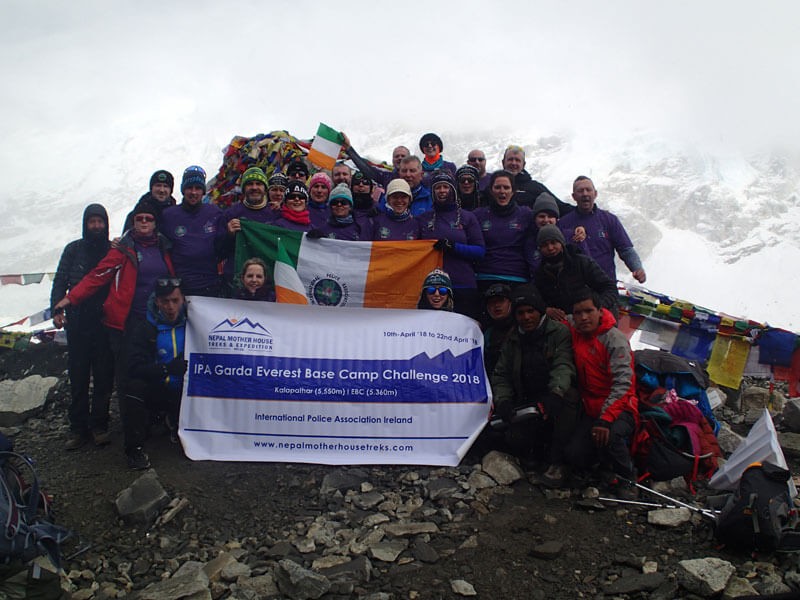
Similarly, a novice may find it difficult to navigate the Himalayan trails. Never underestimate the Himalayas while traveling individually.
What are teahouse facilities?
Most of the trekking in Nepal is on teahouse-based trails. Therefore, before trekking, you should know what a teahouse is.
Well, tea houses are small establishments in the Himalayas that provide food and accommodation services. Tea houses offer basic lodging, and luxury accommodations are not expected. Still, you will be getting a clean bed to sleep in along with delicious food. However, please bring your towel for the bath, shampoo, and soap. Some teahouses will provide the towel, but occasionally you won't be able to use it by yourself. Likewise, bring with you toilet paper on the trek; most of the teahouses use only water to wash it.
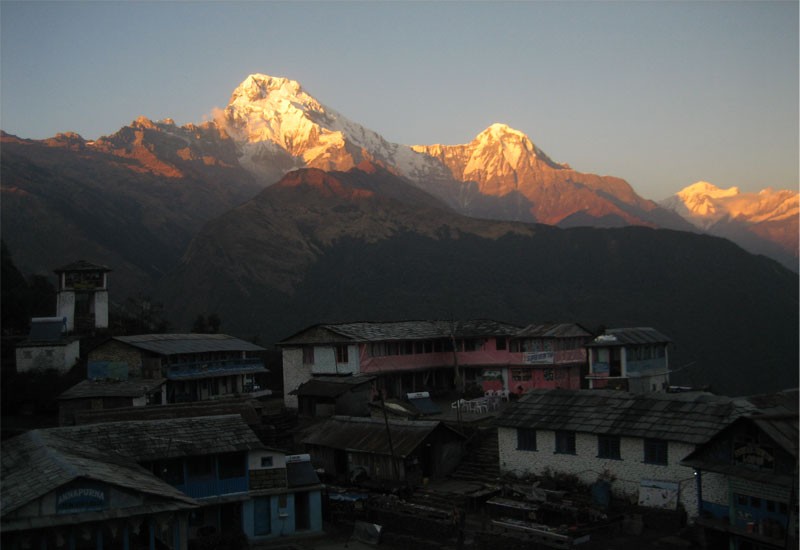
Some of the famous trails, such as the Everest Base Camp Trek, offer luxury hospitality. Everest View Hotel holds the record for the world's highest 5-star hotel at 3,920 meters.
10. Pack Proper Gear and Equipment (Rent it).
Be prepared for challenging weather. Once a wise man said, “It is not awful weather, only inappropriate clothing.” Proper gear and equipment are very essential while trekking in the Himalayas.
Trekking gear can be expensive and is not made for daily usage. On the other hand, you can rent them from multiple stores in Kathmandu. Also, the prices are reasonably good.
Likewise, some mobile apps are useful while you are traveling in Nepal.
Find Nepal's Best Ride-Sharing Apps: An Investigative Deep Dive
Navigating Nepal's crowded streets—in Kathmandu, Pokhara, or other big cities—is challenging because of traffic congestion, restricted lanes, and the chaotic public transit system. By offering a fast, safe, reliable, and consistent replacement, ridesharing apps have changed travel. The best ride-sharing apps transforming Nepal's urban mobility are thoroughly reviewed here.
Pathao: Your Daily Riding Partner
Pathao is a Bangladeshi ride-sharing app among the best ones in Nepal. Its simplicity, reliability, and cost have been factors in its great popularity. Pathao has options for bike and car trips; hence, it is a fantastic alternative for both groups and single guests. Pathao promises quick pickups—even during peak traffic—by use of a robust network of drivers and motorcycles. It also offers many ways to pay, including cash and digital wallets, therefore facilitating simple transactions.
2: Tootle: Trailblazing Bike-Sharing Nepal
Concentrating largely on bike rides, homegrown ride-sharing app Tootle has changed transport in Nepal. It's perfect for traversing Nepal's typically congested city roads, where cars can struggle. The user-centric approach of Tootle, combined with rigorous rider safety standards, has drawn a committed following.
3. InDriver: Your Ride, Your Price
InDriver presents a unique approach to ride-sharing by letting consumers negotiate with drivers and decide their prices. This peer-to-peer pricing system will appeal to consumers seeking price independence. Those on a limited budget who are looking for the best travel discount, especially, find it interesting.
4. Sarathi: Ride-sharing Nepal Pride
Sarathi is another local ride-sharing software that has made going around Nepal hassle-free. Sarathi offers consistent car rides around the city with close attention to safety and service quality. Its proven drivers and consistent pricing approach offer it as a dependable substitute for family vacations or business trips.
5. Everest Rides: Riding Star in Ride-Sharing
Though Everest Rides is a relative newcomer, it is quickly becoming well-known in Nepal's ride-sharing network. With an eye on customer satisfaction, Everest Rides provides options for bike and car travel. The app is appealing to daily commuters, as it offers fair rates and discounts.
Final Thought: Embrace Simplicity With the Optimal Ride-Sharing Apps
These ride-sharing companies have altered the way people get around Nepal with their quick, consistent, and fairly cost-effective travel options. Whether you live in Nepal or are a visitor enjoying the vibrant cities, using these apps can help ensure you have a smooth and enjoyable vacation. Based on my experience, InDriver offers better pricing and coverage than other apps for use in Kathmandu. Choose the app that is best for your requirements and appreciate the simplicity of modern Nepalese travel!
Conclusion
Overall, Nepal is home to numerous trekking trails. Hopping into trekking trails without any preparation can be problematic. So, these were some of the guiding tips before trekking in the Himalayas. Hopefully, it was helpful for your upcoming trip to Nepal.
In conclusion, if you have any confusion or questions, please don't hesitate to ask. Please, you are always welcome. We can help in every possible way.
